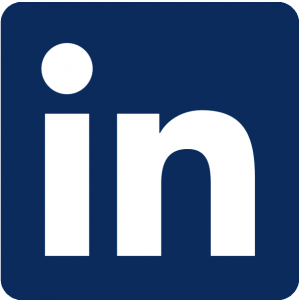Maybe Your LinkedIn Profile Won't Get You Disbarred!
After years of skeptics casting doubt, a bar association makes a clear, well-reasoned statement on the ethics of social media.
 Finally! A major bar association finally gets it when it comes to LinkedIn.
Finally! A major bar association finally gets it when it comes to LinkedIn.
Amid all the hoopla around using LinkedIn to build your legal practice one tangential acquaintance referral at a time, there’s always been the vague fear that your fancy LinkedIn profile is about to get you busted for an ethical breach. First, some folks started musing that LinkedIn’s unsolicited “endorsements” from people you barely know open the door to false advertising. Then some bar associations started issuing ominous statements about whether “connecting” and “friending” are the same or not. Then the New York County Lawyers Association issued a half-cocked opinion of real argle-bargle. It’s impossible to top Carolyn Elefant’s immediate reaction to this tripe:
And therein lies the problem. Because slapping the phrase “this constitutes lawyer advertising” in the context of the LinkedIn universe causes MORE confusion for the public. When potential clients see a scarlet “A” on a lawyer profile, they’re going to assume that the lawyer paid for the ad and that it’s inherently less truthful than the other non-advertorial profiles on LinkedIn. Worse, users are likely to draw inaccurate conclusions – either that the lawyer is doing well enough to pay for a spendy ad on LinkedIn, or is so desperate that he can’t find clients without paying for social media exposure. Either way, requiring lawyers to include an advertising disclaimer on an otherwise ordinary LinkedIn listing has the effect of “misleading by creating a false appearance” and therefore, is deceptive.

Early Adopters Of Legal AI Gaining Competitive Edge In Marketplace
But the New York City Bar gets it. In Formal Opinion 2015-7, the venerable institution took a hard look at the new-fangled “Internets” and realized that it’s hubris to approach ethical questions with an outdated paradigm:
Ethics committees tasked with providing guidance on these issues find themselves straining to force fit the proverbial square peg of social media into the round hole of legal ethics – with varying degrees of success. In addition, due to the pace of technological change, bar regulators may be reluctant to amend ethics rules to incorporate social media use, out of a legitimate concern that any such rules may become obsolete as social media platforms develop and change.
This places the New York City Bar firmly in the group of “the majority of online users with an IQ over 80,” to quote Elefant.
As Law360 summarized, Formal Opinion 2015-7 — unlike the New York County opinion — began from the premise that online communication is not presumptively an advertisement.
Sponsored

Navigating Financial Success by Avoiding Common Pitfalls and Maximizing Firm Performance

Is The Future Of Law Distributed? Lessons From The Tech Adoption Curve

The Business Case For AI At Your Law Firm


Is The Future Of Law Distributed? Lessons From The Tech Adoption Curve
The committee concludes that a LinkedIn profile must meet five criteria to meet the definition of a lawyer advertisement to be subject to content restrictions and requirements.
Those criteria are that the profile was made by or for the lawyer; its primary purpose is to attract new clients and to be viewed by them; the content relates to specific legal services; and the profile doesn’t fall within a recognized exception in the definition of legal ads, according to the opinion.
While LinkedIn includes many communication tools — networking groups and blogs, among others — that might be used like an ad for new clients, the committee says the many other potential uses of LinkedIn, from professional networking to job searches, argue against a blanket conclusion that its primary use is advertising.
So connect away people! Talk about your experience. Swap “war stories” of “mere puffery” with your virtual colleagues. The legal profession may be a bit slow on the technological uptake, but it’s getting there.
Many Atty LinkedIn Profiles Don’t Count As Ads, NYC Bar Says [Law 360]
Formal Opinion 2015-7 [NYC Bar]
Sponsored

Early Adopters Of Legal AI Gaining Competitive Edge In Marketplace

Legal AI: 3 Steps Law Firms Should Take Now








